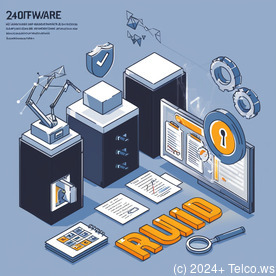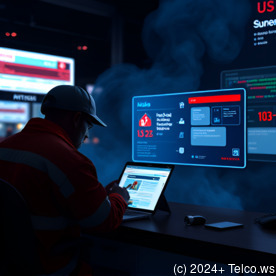- Outstanding Pros ready to help.
- Pay Crypto for Fiat-only Brands.
- Access Top Tools avoiding Sanctions.
- You can buy in total privacy
- We manage all legalities for you.


Virtual Private Network (VPN): A Complete Guide to Online Security
Introduction to VPNs
A Virtual Private Network (VPN) is a technology that creates a secure and encrypted connection over a less secure network, such as the Internet. VPNs are widely used for various purposes, including enhancing privacy, securing data transmission, and bypassing geographical restrictions on content. The fundamental principle behind a VPN is to provide users with a private network experience while utilizing public infrastructure.




How VPNs Work
At its core, a VPN works by routing your device's internet connection through a server operated by the VPN provider instead of going through your Internet Service Provider (ISP). This process involves several key steps:
- Connection Establishment: When you connect to a VPN service, your device establishes a secure connection to the VPN server using protocols such as OpenVPN, L2TP/IPsec, WireGuard, or IKEv2/IPsec.
- Encryption: Once connected, all transmitted data between your device and the VPN server is encrypted. This encryption guarantees that even if someone intercepts your data packets, they cannot read them without the decryption key.
- IP Address Masking: The VPN server assigns you an IP address from its pool, effectively hiding your real IP address from websites and services you access online. This facilitates anonymity and enables access to geo-restricted content.
- Data Tunneling: The encrypted data creates a “tunnel” that protects it from prying eyes while traversing the public internet.
- Accessing Resources: Upon reaching the VPN server, your data is decrypted before being sent to its final destination on the internet. Responses follow the same route back to you, ensuring continuous security.




Types of VPNs
Various types of VPNs cater to different needs:
- Remote Access VPN: Allows individual users to securely connect to a remote network from anywhere globally, commonly used by employees working remotely who need access to internal company networks.
- Site-to-Site VPN: Connects entire networks together securely over the internet, often utilized by businesses with multiple offices across different locations.
- Client-based vs. Network-based: Client-based VPNs require software installation on individual devices, while network-based solutions are set up at the router level for entire networks.
- Personal vs. Corporate: Personal VPN services are typically subscription-based offerings for individual consumers, while corporate solutions cater to businesses requiring advanced security measures for sensitive data.




Benefits of Using a VPN
- Enhanced Privacy and Anonymity: VPNs mask your IP address and encrypt your online activities, providing significant privacy benefits against ISPs and potential hackers.
- Security on Public Wi-Fi Networks: Public Wi-Fi is notoriously insecure; using a VPN protects sensitive information while accessing these networks.
- Bypassing Geo-Restrictions: Many streaming services impose restrictions based on geographic location; a VPN allows users to appear as if they are accessing content from various regions.
- Avoiding Bandwidth Throttling: Some ISPs throttle connection speeds based on user activity. A VPN can help users avoid this by concealing their online activities from ISPs.
- Safe Data Transfer for Remote Workers: VPNs ensure that sensitive company data remains protected during transmission over potentially insecure networks, a critical aspect for remote teams.




Challenges and Limitations of Using a VPN
- Reduced Speed: Users may experience slower internet speeds when connected via a VPN due to encryption processes and longer routing paths.
- Cost Considerations: While free options are available, reputable paid services range from $10 to $20 per month, offering more robust security features and customer support.
- Legal Implications: In some countries, the use of specific types of encryption or bypassing geo-restrictions may be illegal or against terms of service agreements.
- Trust Issues with Providers: Users must ascertain that their chosen provider does not log activities or sell data, necessitating thorough research before subscription.
- Compatibility Issues with Certain Services: Some streaming services actively block known IP addresses associated with popular consumer-grade VPNs, which may limit access despite having a VPN.
- Configuration Complexity: Setting up advanced configurations or site-to-site connections may require technical expertise that not all users possess.




Conclusion: Investing in VPN Protection
Utilizing a Virtual Private Network offers immense benefits in privacy and security in today's digital landscape rife with threats. However, careful consideration is essential when selecting service providers, as due diligence helps navigate potential legal implications based on regional laws governing internet usage.
Interested in acquiring reliable online protection through a reputable provider? Our comprehensive VPN services start at $720 per year, which includes unlimited bandwidth usage across multiple devices and top-tier security features.
Please proceed to our Checkout Gateway and use our Payment Processor to pay the annual fee of $720 in favor of our Company, following the instructions provided. Once you have completed your payment, contact us via email or phone with your receipt and details to set up your VPN service. Thank you for prioritizing your online security!



